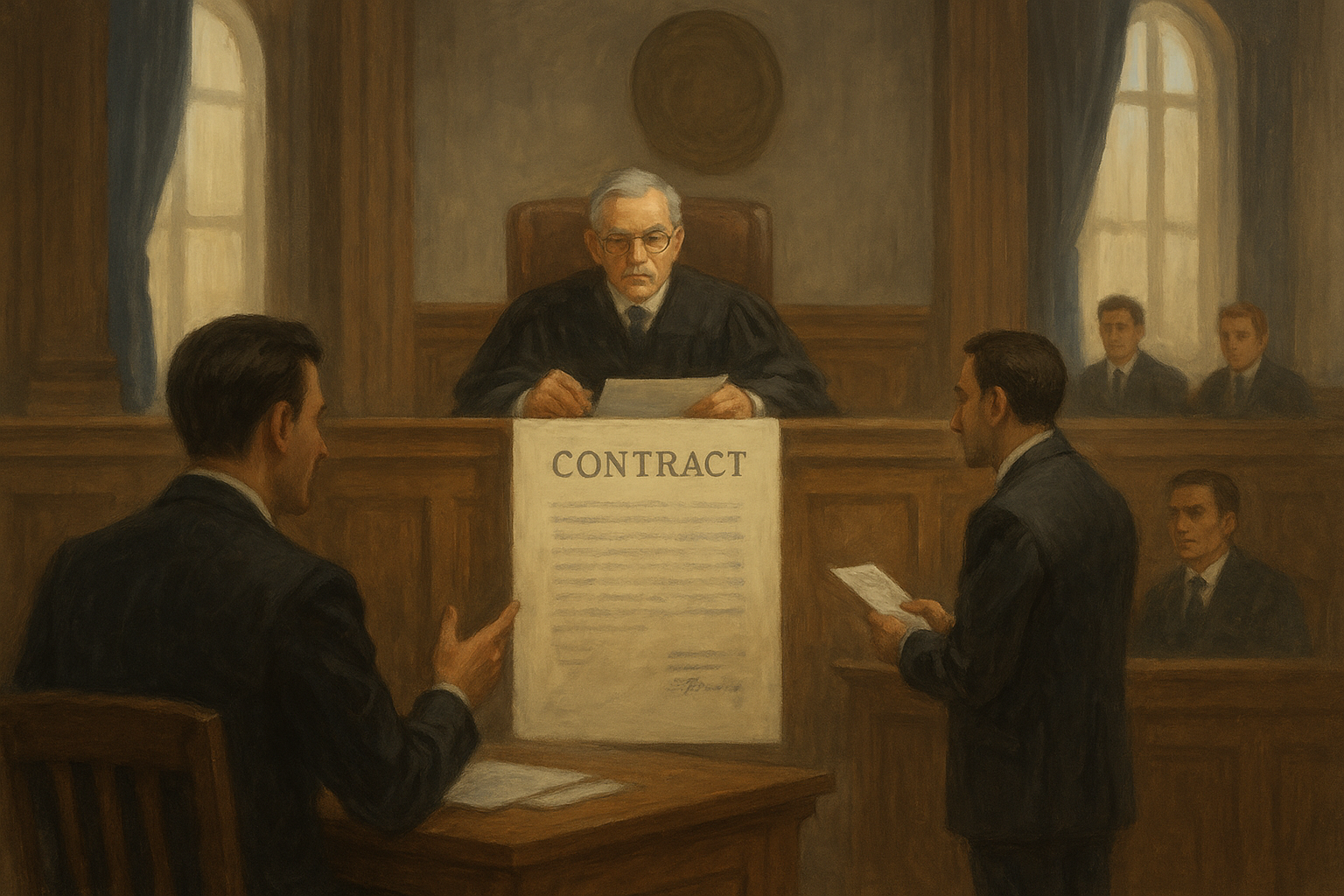Simplified Explanation of the Judgment
In this case, the Patna High Court dealt with a petition filed by a contractor challenging the termination of its work contract and a two-year debarment by the South Bihar Power Distribution Company Limited (SBPDCL). The contractor claimed that the termination was arbitrary and that the debarment was imposed without following due process.
The petitioner had entered into a contract for work under the power distribution scheme. However, the respondent authorities issued a letter dated 20.07.2020 (Letter No. 1473) terminating the contract and imposing a two-year debarment, citing breach of General Conditions of Contract (GCC) clause 10.30.
The petitioner argued that blacklisting or debarment is a serious action, and it must be carried out through a separate legal process—not merely by including a clause in the termination letter. They also sought the Court’s intervention to restrain the encashment of their bank guarantee and to allow them to continue the work.
On the other hand, the respondent companies, through senior counsel, pointed out that the termination and debarment clause was later clarified through a corrigendum letter dated 20.08.2020 (Letter No. 1628). In this corrigendum, the debarment clause (Clause 10) was stated to have been “inadvertently” added and was subsequently removed. Hence, the respondent claimed that no debarment existed as per the current legal position.
Additionally, the respondents highlighted that the GCC includes specific clauses—Clause 10.31 for dispute resolution and Clause 10.32 for arbitration. These provide a legal path for the petitioner to challenge the termination and any other contractual disputes.
After hearing both parties and reviewing the documents, the Hon’ble Court held that since a valid alternative remedy is available through arbitration, the writ petition was not maintainable at this stage. The Court directed the petitioner to avail of this arbitration route for resolving its grievances and dismissed the writ petition.
Significance or Implication of the Judgment
This decision reinforces the principle that contractual disputes, especially those involving government contracts, must be resolved through the procedures agreed upon in the contract—most notably arbitration.
It also clarifies that a debarment cannot be enforced unless explicitly confirmed and communicated as a separate administrative action. A corrigendum removing the debarment nullifies the earlier imposition, which courts will consider as binding.
The judgment is particularly relevant for contractors dealing with public sector undertakings (PSUs), indicating that unless there is a clear violation of fundamental rights or lack of due process, courts will direct the parties to follow the arbitration path as stipulated in their contract terms.
Legal Issue(s) Decided and the Court’s Decision with reasoning
- Whether the termination and debarment order was valid and could be challenged under writ jurisdiction?
- Court’s View: The order cannot be challenged directly in writ since the contract includes a specific arbitration clause providing an alternative remedy.
- Whether debarment was still in effect?
- Court’s View: No. The corrigendum dated 20.08.2020 explicitly removed the debarment clause, hence it is not enforceable.
- Whether the Court should intervene due to alleged arbitrariness?
- Court’s View: No. The appropriate remedy lies in arbitration under Clause 10.32 of the GCC.
Case Title
Dongfang Electronics Private Limited vs. Union of India & Others
Case Number
Civil Writ Jurisdiction Case No. 7353 of 2020
Coram and Names of Judges
Hon’ble Mr. Justice Vikash Jain
Names of Advocates and who they appeared for
- Mr. J.S. Arora, Senior Advocate (for the petitioner)
- Mr. Umesh Prasad Singh, Senior Advocate (for Respondent Nos. 3 to 10)
- Mr. Kunal Tiwari, Advocate (for Respondent Nos. 3 to 10)
- Dr. K.N. Singh, ASG (for Respondent Nos. 1 and 2)
- Dr. Anshuman, CGC (for Respondent Nos. 1 and 2)
Link to Judgment
If you found this explanation helpful and wish to stay informed about how legal developments may affect your rights in Bihar, you may consider following Samvida Law Associates for more updates.









